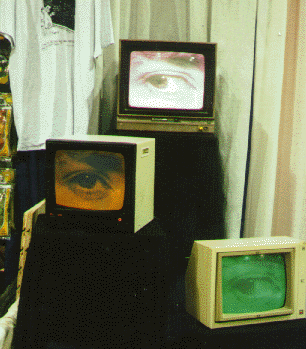Get Your Butt Out of My Face
Jim Meskauskas (I think) coined the term "Flow Experience Marketing" (which is a little flowery for me, but still...) to describe how marketing can 'get in the flow' instead of interrupting all the time.
"The idea is that instead of creating an arresting experience with advertising full of a product's and brand's value propositions, you let products be part of an experience already being had. You let the product play the role of Robin rather than constantly casting it in the roll (sic) of Batman. The product or service becomes part of an experience and, thus, part of a user's 'background of everydayness.'"To me, this is a crucial concept for marketers to internalize: don't leach value out of the context you're in (like TV ads do) - always add value (like Levi's antidote, or Coca-Cola's sponsorship of Buzz-oven). If you're not adding value, you're sticking your butt in your customers' faces. Unless you're in the porn industry (although sometimes it's hard to tell), this is usually a bad thing. I know I've said it before, but I feel so strongly about this, I'll say it again: buy the drinks. Your customers will make you part of the conversation just as surely as if you barge up to the table and shout "have I got a deal for you!", only they'll be saying nice things. Technorati tags: Marketing, Advertising, Sponsorship, Customers, SocialNetworking

 This post is Del.icio.us!
This post is Del.icio.us!







 Subscribe via RSS
Subscribe via RSS
